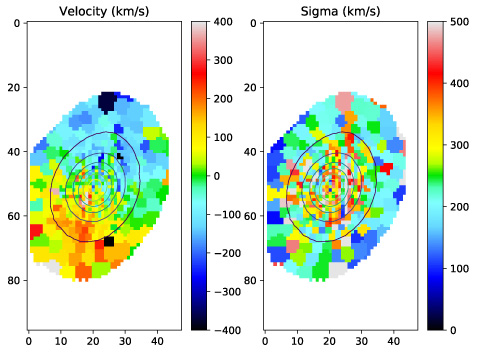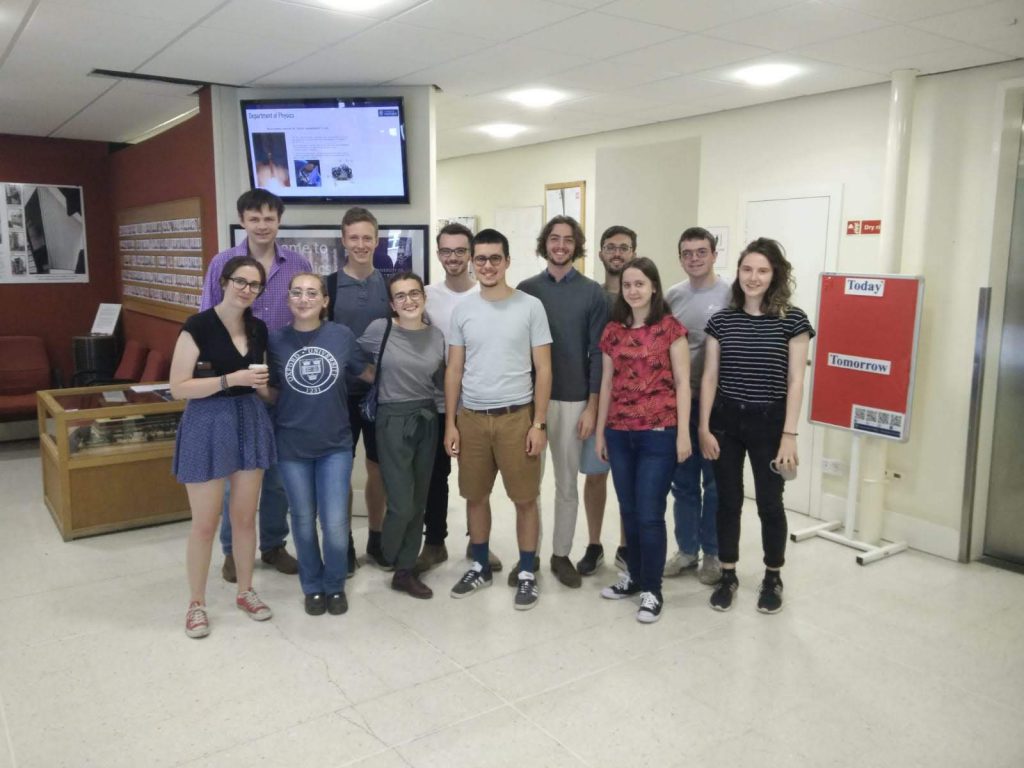September 28, 2018, by Prof Meghan Gray
Chloe’s summer internship in Oxford
Guest post by Chloe James-Turner, who is just starting her fourth and final year on the MSci Physics with Theoretical Astrophysics course. Summer research experiences are a great way for students to experience life in other institutions, learn new skills, and just enjoy doing some hands-on physics.
This summer I did an internship in the Astrophysics department at Oxford University. This was a great experience, I got to do a really interesting project and meet some great people, and learnt a lot about what doing a PhD, or working as a researcher full time, might be like! The internship was 8 weeks, and I worked mainly on a research project with two supervisors, a PhD student and a Professor.
My project was on classifying galaxies based on analysing their spectra. Early type galaxies (ellipticals and lenticulars) are classified visually, but visual features don’t often relate to the physical properties of a galaxy, and can change depending on the orientation of the galaxy. So instead if we classify a galaxy based on the features of their velocity maps, there are two distinct types. Fast rotators, which have a clear ordered rotating disk of stars within the galaxy, and slow rotators, which have stars with more random orbits that are more 3D in shape.
I was given integral field spectrograph telescope data for 20 different early type galaxies located within two galaxy clusters (Coma and Perseus) that hadn’t been classified before. I created velocity maps for each one and did a lot of analysis to identify the slow rotators within each cluster. The ratio of slow rotators to fast rotators and what this value is dependent on (for example density) can tell us a lot about how these different galaxies form and where they live.

Velocity maps of a galaxy, created by Chloe. Red shows where stars are moving away from us; blue shows where they are moving towards us.
This project was all computational, but consisted of a lot of components, and I was introduced to useful astronomy programs and techniques I hadn’t used before like spectral fitting and galaxy modelling. And at the end of the 8 weeks our group of interns each presented our individual project results to a small group.
Apart from the daily work on my project, working in the department offered many other opportunities. The summer astrophysics interns had weekly talks from various researchers working at Oxford, which gave us an opportunity to get to know some of the researchers and their current work, and to ask them lots of questions!

Oxford astrophysics summer interns (Chloe is at far right)
We were also invited to a weekly casual journal club, where a few members of the department would get together and talk about papers that had been published that week. I found these really informative, getting to see what kind of research was being published, and the opinions people had on the methods used.
We also had a lot of other opportunities to get to know the other researchers and students in the department at weekly coffee and cake mornings, and lots of pub trips!
Overall the internship was a really rewarding experience, and I’d definitely recommend it to anyone interested in doing a PhD or wanting to see what doing research full time is like!
No comments yet, fill out a comment to be the first

Leave a Reply